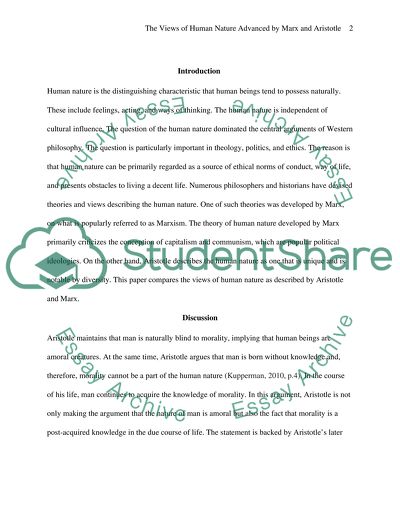Cite this document
(The Views of Human Nature Advanced by Marx and Aristotle Research Proposal Example | Topics and Well Written Essays - 1500 words, n.d.)
The Views of Human Nature Advanced by Marx and Aristotle Research Proposal Example | Topics and Well Written Essays - 1500 words. https://studentshare.org/philosophy/1685991-compare-the-views-of-human-nature-advanced-by-two-ideologies-of-your-choice
The Views of Human Nature Advanced by Marx and Aristotle Research Proposal Example | Topics and Well Written Essays - 1500 words. https://studentshare.org/philosophy/1685991-compare-the-views-of-human-nature-advanced-by-two-ideologies-of-your-choice
(The Views of Human Nature Advanced by Marx and Aristotle Research Proposal Example | Topics and Well Written Essays - 1500 Words)
The Views of Human Nature Advanced by Marx and Aristotle Research Proposal Example | Topics and Well Written Essays - 1500 Words. https://studentshare.org/philosophy/1685991-compare-the-views-of-human-nature-advanced-by-two-ideologies-of-your-choice.
The Views of Human Nature Advanced by Marx and Aristotle Research Proposal Example | Topics and Well Written Essays - 1500 Words. https://studentshare.org/philosophy/1685991-compare-the-views-of-human-nature-advanced-by-two-ideologies-of-your-choice.
“The Views of Human Nature Advanced by Marx and Aristotle Research Proposal Example | Topics and Well Written Essays - 1500 Words”. https://studentshare.org/philosophy/1685991-compare-the-views-of-human-nature-advanced-by-two-ideologies-of-your-choice.


